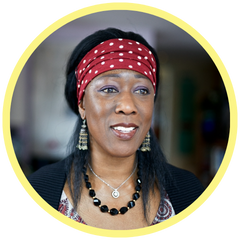GETTING BETTER
My community has prejudices about mental health. How can I talk about it?
GETTING BETTER
My community has prejudices about mental health. How can I talk about it?
Reviewed by Shirlette Wint, therapist and social worker
Have you ever had dark thoughts, disturbed sleep, self-doubt, or a lack of motivation, but hesitated to talk about it with your family because it’s frowned upon in your community?
Unfortunately, some communities are still prejudiced when it comes to mental health. There are many reasons for this, but it’s most often related to cultural customs, religion, ignorance, or fear of judgment. However, it’s perfectly normal to go through tough times in life, and you’re not alone.
So how can you start the discussion and get help? Here are some suggestions. 👇
DEPRESSION TEST
How can you tell if you’re having mental health problems?
This test can help you identify whether you’re struggling with your mental health:
Get started
Also ask yourself if your loved ones’ behaviour toward you has changed or if you’ve been arguing with them more often than normal: this can be a good indicator of whether or not you’re doing well.
If, when you answer these questions, you realize that you’re experiencing some mental health issues, you may feel a little lost, afraid, or lonely, especially if your family isn’t open to these issues. But know that having ups and downs is a part of life and there are solutions to help you.
To learn more about mental health, click here
Why is it important to get help when you’re not doing well?
It’s important to find help when you’re not feeling well because the longer you wait, the more serious the problems become and the longer they may take to treat. It can be tempting to hide how you feel, tell yourself that it will go away on its own and isolate yourself, but you’re likely to waste time when there are lots of ways to get through the situation.
Also, don’t forget that certain physical illnesses can have the same symptoms as some mental health issues. Therefore, it’s important to see a health professional to understand what’s happening.
How can you talk about your mental health when your family has prejudices?
You might be afraid of admitting or putting a name to what’s happening to you because you don’t understand it and it’s scary. You might also be afraid of disappointing your loved ones or being rejected by them because you think they might judge you. But remember that going through a hard time and needing help from others happens to everyone, and you can make it through.
So, take a deep breath and check out these solutions to get help:
- Contact a free, anonymous hotline like Tel-jeunes or Kids Help Phone to talk with a worker who will help you explain your situation to your loved ones.
You can find their numbers 👉here.
- Confide in an adult you trust who can talk to your parents about your problems. This could be an aunt, uncle, teacher, coach, school psychologist, or nurse, etc.
- Ask to see your family doctor and tell them about what’s happening. Your doctor can tell your family about the diagnosis and help you find the right treatment.
What can you do if your family remains closed-minded despite your attempts to talk about your mental health problems?
👉If you’re under the age of 14, you can talk with your school psychologist or an adult you trust so they can help you. Know that if what you’re experiencing is a danger to your mental or physical health, the people you have spoken to are required to report the situation to the Director of Youth Protection, which may take action with your family.
👉If you are over 14, know that you can consult a health professional without your family’s permission. But doing this can be hard to manage, so think about talking with workers at your school or community centre so you can get support instead of navigating this on your own. You can also ask a friend to come with you.

How can you change your community’s preconceived notions about mental health? 🧠
The easiest way to change mentalities is to start a support group on social media. By sharing your experience with other young people and providing mental health information or advice on how to get help, you will start a positive discussion about these issues and, little by little, shift prejudices.
NEED TO TALK ABOUT HOW YOU FEEL?
Talk to a Tel-Jeunes worker: it’s anonymous, free, and available 24/7
